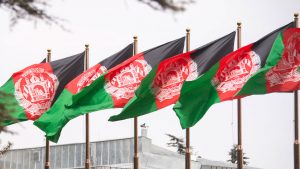KABUL — Afghanistan’s Taliban-run administration on Saturday ordered all local and foreign nongovernmental organizations (NGOs) to stop female employees from working, in a move the United Nations (UN) said would hit humanitarian operations just as winter grips a country already in economic crisis.
A letter from the economy ministry, confirmed by spokesperson Abdulrahman Habib, said female employees of NGOs were not allowed to work until further notice because some had not adhered to the administration’s interpretation of Islamic dress code for women.
It comes days after the administration ordered universities to close to women, prompting global condemnation and sparking some protests and heavy criticism inside Afghanistan.
Both decisions are the latest restrictions on women that are likely to undermine the Taliban-run administration’s efforts to gain international recognition and clear sanctions that are severely hampering the economy.
US Secretary of State Antony Blinken said on Twitter he was “deeply concerned” the move “will disrupt vital and life-saving assistance to millions,” adding: “Women are central to humanitarian operations around the world. This decision could be devastating for the Afghan people.”
Ramiz Alakbarov, the UN deputy special representative for Afghanistan and humanitarian coordinator, told Reuters that although the U.N. had not received the order, contracted NGOs carried out most of its activities and would be heavily impacted.
“Many of our programs will be affected,” he said, because they need female staff to assess humanitarian need and identify beneficiaries, otherwise they will not be able to implement aid programs.
International aid agency AfghanAid said it was immediately suspending operations while it consulted with other organizations, and that other NGOs were taking similar actions.
The potential endangerment of aid programs that millions of Afghans access comes when more than half the population relies on humanitarian aid, according to aid agencies, and during the mountainous nation’s coldest season.
“There’s never a right time for anything like this… but this particular time is very unfortunate because during winter time people are most in need and Afghan winters are very harsh,” said Mr. Alakbarov.
He said his office would consult with NGOs and UN agencies on Sunday and seek to meet with Taliban authorities for an explanation.
Aid workers say female workers are essential in a country where rules and cultural customs largely prevent male workers from delivering aid to female beneficiaries.
“An important principle of delivery of humanitarian aid is the ability of women to participate independently and in an unimpeded way in its distribution so if we can’t do it in a principled way then no donors will be funding any programs like that,” Mr. Alakbarov said.
When asked whether the rules directly included UN agencies, Mr. Habib said the letter applied to organizations under Afghanistan’s coordinating body for humanitarian organizations, known as ACBAR. That body does not include the UN, but includes over 180 local and international NGOs.
Their licenses would be suspended if they did not comply, the letter said.
Afghanistan’s struggling economy has tipped into crisis since the Taliban took over in 2021, with the country facing sanctions, cuts in development aid and a freeze in central bank assets.
A record 28 million Afghans are estimated to need humanitarian aid next year, according to AfghanAid. — Reuters

